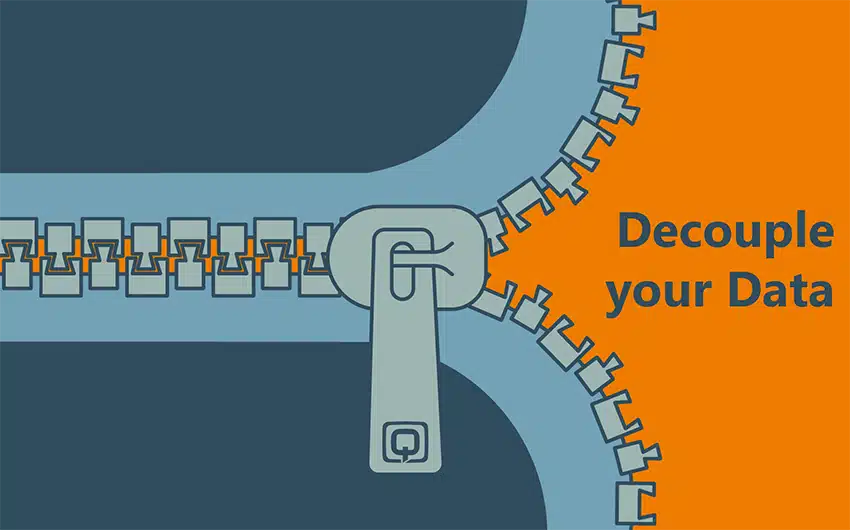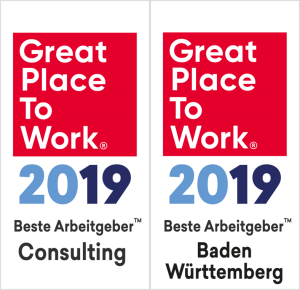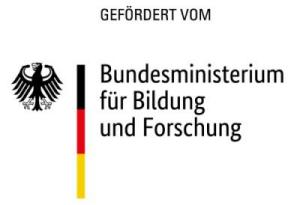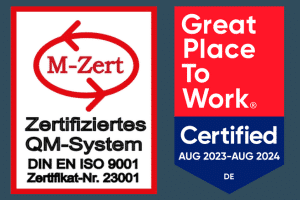Insights into Decoupling of Global SAP Landscapes

Is there a need for decoupling SAP landscapes? In this blog you will learn how the geopolitical environment can influence the way to operate SAP systems worldwide and the new emerging trend towards decoupling global SAP landscapes.
The continuous expansion to new countries and regions, often combined with the introduction of new solution components, processes and applications, represents a frequent scenario for global organizations. Until recently, the preferred option was a new implementation or a consolidation of different, locally distributed SAP systems into one central SAP system.
One-single-Instance: the preferred scenario until recently
While various architecture options exist, and a tailored analysis are available for each company to identify the optimal solution, the widely adopted and recommended system architecture so far was the “one single instance”. Commonly known as the “single box” approach. This involves running all countries/regions, applications, processes, and data within a single client/tenant. The single instance architecture proves technically feasible even with high transaction volumes, large databases, and substantial network loads. Various best practices for organizing and managing the application lifecycle ensure efficient maintenance with a relatively low to moderate Total Cost of Ownership (TCO).
This trend exists since the beginning of this millennium and was favored by a relatively stable geopolitical environment. Moving from a decentralized system topology to a centralized and standardized one brings enormous benefits in terms of harmonized processes and unambiguous master and application data. In the past, for many global companies, running dedicated IT systems and data centres in various countries and regions was by far more expensive and error-prone than running one or a few central systems in one data centre at one single location.
The introduction of powerful SAP Business Suite solutions, such as SAP ECC, and later the increased usage of SAP S/4HANA allowed the introduction of the single instance architecture and thus enabled effortless processing of larger data and big transaction volumes which facilitated this trend.
Global pandemics, geopolitical tensions, data protection and data localization laws
The pursuit of harmonization and standardization in a central system has changed significantly since 2015 onwards, starting with the introduction of country/region-specific strict data localization laws, requiring – among many other specifications – dedicated data to be locally stored in the relevant country or region, such as GDPR (General Data Privacy Regulations) in Europe, or CCSL (China Cybersecurity Law).
From 2020 onwards, further dramatic events have been changing the overall picture: Just think of the production bottlenecks in China due to the Covid pandemics, or geopolitical tensions such as the Russian-Ukrainian war and the unprecedented western restrictions on exchanges with Russia, not to mention the critical situation in the Middle East.
Restrictions in China play a major role for the future of data governance
In the last few years, the Chinese government has amplified the national data security regulatory system with the next generation of the China Cybersecurity Law (CCSL) together with the Data Security Law (DSL) and the Personal Information Protection Law (PIP). The Cybersecurity Law regulates that companies must store dedicated and relevant data (in summary “personal data” and “important data”) in China and shall transfer them to other countries/regions only under special conditions. Based on the 2017 Cybersecurity Law, the Data Security Law and the Personal Information Protection Law include new guidelines for handling data, updated enforcement measures, and additional restrictions on the transfer of data outside of China.
The size and significance of China’s economy will potentially require major adjustments for companies doing business in China. These new restrictions play a major role for the future of data governance, continuing a trend toward more complex regulatory regimes, competing legal frameworks, and increased restrictions on international data flows. One of the biggest concerns is that the new data classification categories aimed at protecting national security are loosely defined, leaving interpretation up to Chinese authorities, and the fines for businesses in case of violation are quite high, along with the potential forced shutdown of the operations and potential criminal charges for individuals.
The rise of decoupling
However, China is not the only major economy to issue such a comprehensive data governance and residency framework, with India following the data localization trend and now requiring to store books of account and related data in a database physically located in India. Further countries like Brazil, Indonesia, Vietnam and Nigeria, to name a few big or emerging economies, also require that personal data shall be stored within the local country.
The trend towards geopolitical fragmentation reflects the demand of global acting companies for an adjustment of their global SAP landscape to enable them react more flexibly to local requirements and geopolitical challenges. Geopolitical issues and changing legal requirements can lead companies to divestments, carve-outs of companies, mergers and acquisitions.
With regard to SAP system landscapes, this trend is gradually leading to the discontinuation of the “traditional” single instance approach, where all global data is stored and managed in one central system and database at one single data centre location. Instead, a new tendency is emerging that involves splitting and decoupling the central system landscape, with the primary objective of identifying the optimal decoupled target architecture.
Decoupling approaches to cope with the new world
Soft Decoupling
A crucial aspect shared by these data localization laws is the concept of ‘Cross-border Data Transfer.’ In cases where a country or region permits the transfer of locally stored data beyond its borders, there are often specific options, tools, and solutions that enable the operation of an efficient global landscape with a (quasi) central system together with various interface/integrations for data transfer into relevant countries/regions. These “selected data transfer” approaches can be defined as “Soft Decoupling” solutions, since they work without a separate system/instance in the relevant country/region.
Replication Approach
Examples for a Soft Decoupling solution are the so-called “Side-car” approach (see details below) as well as backup, archiving and replication solutions (e.g. SAP SLT SAP Landscape Transformation Replication Server). These Soft Decoupling solutions have in common that they can fulfil the data-related localization requirements without the need of an own (decoupled) system/instance. This applies in particular for moderate amounts of data and for localization laws referring to specific, easily identifiable data within a well-established data model (e.g. Business Partner Data). Additionally, these solutions are well-suited for scenarios where specific requirements are moderate, such as no stringent rules regarding the date and time of local data storag
Backup Archiving
The main approach in these cases is the following: The relevant data are identified and transferred from the central database to a local (often smaller) database in the respective country or region. Currently, this option is allowed in some countries, e.g. in India with the “Companies Act “ Law 2022 for Books of Account and related data in form of a ‘backup’. These data backups are routinely conveyed from the company’s headquarters to a database located in India.
Side Car
A special example from the Business Partner Master Data can explain how a “Side Car” solution works: The standard transaction in SAP S/4HANA for Business Partners (BP) includes a BAdI (Business-Add-in) that enables the implementation of your own logic in form of an Add-on which can detect the relevant country/region during the maintenance of BPs. If a BP belongs to a relevant country/region the BAdI can first replicate the relevant BP data to a local App/Database in the relevant country/region with a suitable interface and integration, and after confirmation then save the BP data in the global database in a second step.
Hard Decoupling
If a country does not allow cross-border data transfer and/or provides quite strict data localization requirements, a Soft Decoupling solution is generally not feasible. In addition, there is a general, unforeseeable risk that a country/region suddenly changes its cross-border transfer policy, e.g. due to geopolitical shifts. In the event of a transfer stop, setting up a dedicated SAP system/instance in the affected country/region becomes necessary. This can be defined as a “hard” decoupling Solution.
Carve-Out
The common hard decoupling approaches in this case are “Carve Out”, new implementation and 2-Tier Approach. The Carve Out approach is needed if a country/region with all its data and applications has to be removed and transferred from the global system to a data center in the dedicated country/region. In some cases it may be useful to carry out a new implementation (Greenfield approach) instead of a Carve Out. In the event of a Carve Out or a new implementation, you can host the hardware infrastructure in a local data center in the affected country or engage a Hyperscaler if available.
Two-Tier Approach
You can also consider the 2-Tier approach option in case SAP provides a local Data Center in the dedicated country or region, e.g. in China . The decoupled local system/instance is then setup and implemented as an SAP S/4HANA Private Cloud (PCE) or Public Cloud deployment with suitable integration into the global system outside the country (if cross-border data transfer is allowed) . The 2-Tier approach provides pre-configured content and support for several standard scenarios, e.g. for Business Partner Master Data synchronization, so that the overall implementation efforts are generally lower than with a standalone implementation.
Conclusion – Moving towards a decoupling approach
The world is changing dramatically, and companies must quickly respond to new geopolitical and legal requirements in global SAP landscapes. When it comes to IT transformation, both the current geopolitical challenges and legal requirements for data storage or changes in corporate strategy are painting a complicated picture and representing a big challenge for global organizations.
The previous IT centralization trend with a central data storage on one country/region running a global SAP single system/instance with all business relevant countries/regions is moving toward a more “decoupling-centric” trend if countries/regions with “hard” data residency/localization laws are involved.
This “disruptive” trend that is currently emerging is the selective decoupling of systems / selective data migration of personal data or master data in general, stepping down from the one single instance concept in favor of different systems according to different business units / countries / regions. There are different measures which can be put in place to ensure smooth procedures and follow legal requirements, and, if needed, quickly switch to the initial, non-decoupled situation and rapidly react to changes of every kind.
In summary, the following main questions and facts need to be clarified in order to optimally manage this trend:
- Determine which countries/regions are affected and how “soft” or “hard” are the data localization requirements for data, applications and processes.
- Involve a data localization expert and local authorities to confirm the requirements and dedicated data, in particular for the “Soft” Decoupling approach.
- Find out which decoupling approach best suits your target system architecture in the middle and long term.
How QUANTO Solutions helps you with your transformation projects
The trend towards geopolitical fragmentation is driving international companies to adapt their global SAP landscape – with the goal of being able to react more flexibly to local requirements and geopolitical challenges. Geopolitical issues and changing legal requirements can lead companies to:
- Divestments
- Carve-outs of companies
- Mergers and acquisitions
- Decoupling of SAP systems
QUANTO Solutions helps companies to assess the impact of different scenarios and implement decoupling measures for their SAP system landscape – without compromising the efficiency of systems, applications and processes. Our services in the area of globalization /localization include:
- Splitting SAP Systems to ensure a flawless master data management for decentralized approaches
- Implementing MDM to ensure a proper data management (or alternatively without MDM systems)
- Easy-to-use SAP translation of company-specific developments and master data from/to all SAP standard languages, incl. Fiori Apps
- Conversion (Transliteration) from/to Latin and Non_Latin scripts (QUANTO Transliteration Center)
- Implementation of the cloud Implementation of SAP Cloud Integration
- App Management of your Fiori Apps on different systems, in different languages and on different analytics platforms (QUANTO-Analytics)
QUANTO Solutions offers one-stop technical solutions and proven expertise for your global business, including SAP globalization / localization / translation services to make your operations as effortless as possible.
Contact our team of globalization / localization / language specialists to discuss the best strategy for your business.









